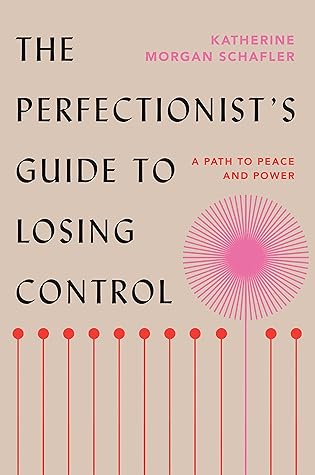More on this book
Community
Kindle Notes & Highlights
Perfectionists are intelligent people who understand that everything can’t work out perfectly all the time. What they sometimes have trouble with is understanding why they still feel so disappointed by imperfection in the face of that intellectual concession. What they sometimes wonder about is why they feel so compelled to endlessly strive. What they’re sometimes confused by is what they’re striving for in the first place. What they often question is why they can’t just enjoy relaxing “like a normal person.” What they want to know is who they are outside of what they accomplish.
Perfectionists are people who consistently notice the difference between an ideal and a reality, and who strive to maintain a high degree of personal accountability.
Parisian perfectionists try to execute a deliberate message: “I’m not trying that hard because I don’t need your approval and I don’t care if you like me”—the subtext of the message being, “You can’t hurt me.” No part of the external messaging is accurate.
In fact, their strategy usually backfires. They’re hurt more often because in their efforts to get others to perfectly like them by being easy-breezy and low maintenance, Parisian perfectionists who haven’t yet discovered how to manage their perfectionism fail to articulate what they need or want.
Procrastinator perfectionists wait for the conditions to be perfect before starting. Dwelling in hesitation, they live alongside the void that forms within you when you don’t do the thing you most want to do.
The problem for these perfectionists is that starting a process taints it—now that it’s real, it can no longer be perfect. If something is perfect to them, it exists only in past memory or future ideal.
The more self-aware a procrastinator perfectionist is, the more frustrated with themselves they are.
Disconcerted by their own paralysis, procrastinator perfectionists assume that if they had more energy or discipline, they’d be able to execute, which is not the case. Procrastinator perfectionists have plenty of discipline and aren’t lazy at all. What they don’t have is acceptance. Acceptance that now is the only time anyone ever starts anything, and that starting now means you’re taking something that’s perfect in your mind and bringing it into the real world, where it is bound to change.
When the looming loss is felt on an unconscious level, procrastinator perfectionists also mistakenly attribute the avoidance of starting to a lack of desire: I must not really want it; otherwise I would’ve done it by now.
It’s not mere talent that rises to the top, it’s persistence. While change does always involve loss, not changing involves a much deeper loss.
It’s as if they signed themselves up for Montessori school for adults—and good for them, because they’re having the best time!
Perfectionists never stop noticing the gulf between reality and the ideal, and they never stop longing to actively bridge the gap.


